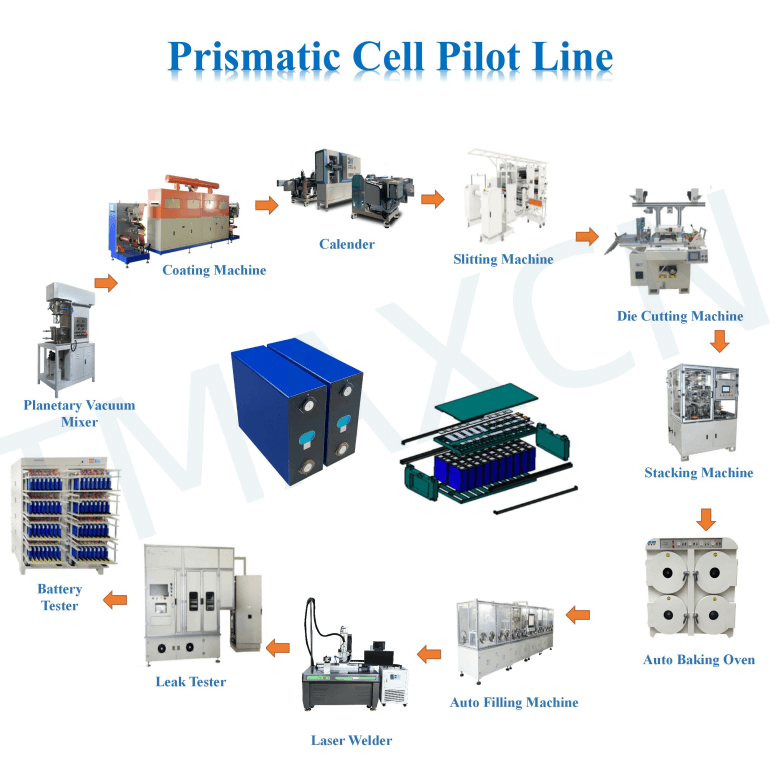- 메일 주소 : David@tmaxcn.com
- 메일 주소 : Davidtmaxcn@gmail.com
- : No. 39, Xinchang Road, Xinyang, Haicang Dist., Xiamen, Fujian, China (Mainland)
A car battery pilot line is a production system designed for the automated and efficient manufacturing of automotive batteries. These assembly lines play a critical role in producing the batteries that power internal combustion engine (ICE) vehicles, as well as electric vehicles (EVs). Here are the key components and processes typically involved in a car battery assembly line:
Cell Preparation: The process begins with the preparation of battery cells. These cells are the basic building blocks of the battery and can be lead-acid cells for traditional ICE vehicles or lithium-ion cells for hybrid and electric vehicles.
Electrode Coating: In the case of lithium-ion batteries, electrode materials are coated onto thin foils. This is a crucial step in the production of lithium-ion cells.
Assembly of Cells: The battery cells are assembled into modules or packs. Modules typically consist of several cells connected in series and parallel configurations, while packs are larger units made up of multiple modules.
Cell Testing: Quality control procedures involve testing individual cells for performance and consistency. Cells that do not meet specifications may be rejected or refurbished.
Module/Pack Assembly: Modules and packs are assembled on the assembly line, including the addition of thermal management components, connectors, and housing.
Electrolyte Filling (for lead-acid batteries): In the case of lead-acid batteries, the cells are filled with electrolyte.
Sealing and Welding: Modules and packs are sealed to prevent leakage and ensure safety. Welding is often used to connect various components securely.
Testing and Quality Control: Battery modules and packs undergo rigorous testing for capacity, voltage, and safety features. Defective units are identified and removed from the production line.
Labeling and Packaging: Once the battery modules or packs pass quality control, they are labeled, packaged, and prepared for shipment to automotive manufacturers.
Traceability: Tracking and documentation of each battery's production history is crucial for quality control and potential recalls.
Safety Measures: Safety is a paramount concern when dealing with high-capacity batteries. Safety protocols and equipment are in place to protect workers and ensure safe operations.
Environmental Considerations: Car Battery scale line need to address environmental concerns, such as recycling and disposal of old or defective batteries and minimizing environmental impacts through sustainable practices.
car battery lab line are highly automated to improve efficiency, reduce labor costs, and maintain consistent product quality. They are essential in supporting the automotive industry's production of vehicles powered by internal combustion engines, hybrid systems, and electric powertrains.
 English▼
English▼





 +86 13174506016
+86 13174506016 David@tmaxcn.com
David@tmaxcn.com

